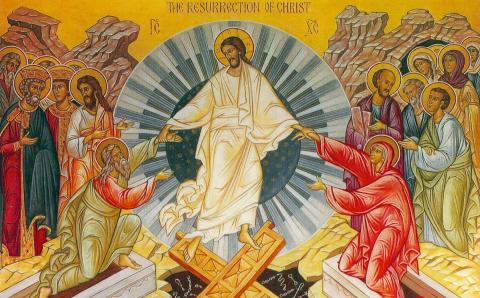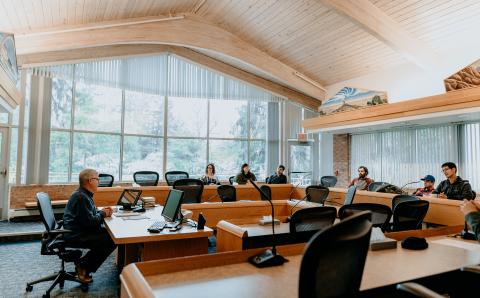Maranatha Fellowship CRC in Farmington, N.M., broadcasts its pastor’s weekly sermons over the airwaves of local radio station KPCL to share the word of God outside its walls. It's a ministry that began because of one church member more than 10 years ago.
Benjamin Hogue initiated the idea in 2009. Hogue and his wife, Lolita, were heavily involved in missions in the Navajo Nation. They “had a heart for reaching others with the gospel, especially their own Navajo people,” said Dave Dykstra, pastor at Maranatha.
The two founders died recently: Lolita in November and Benjamin this past January. But their legacy, and the program they initiated, lives on.
Benjamin was an elder in the church and also served on the Navajo Tribal Council. “Ben considered himself a sort of unofficial missionary all his life ... he always felt the main purpose of his life was to spread the gospel,” said Ruth Benally, a former member of Maranatha who has since moved to Michigan.
“After morning worship, they both would buy ten or more CDs of the sermon to pass out to neighbors and people they met during the week,” said Dykstra.
From handing out CDs came the idea to broadcast sermons over the radio. Sermons air Saturday afternoons. “This broadcast is especially helpful to those on the reservation who do not have internet capability or even good cellular service,” said Dykstra. The Navajo Nation has a total population of 356,890 people, and many within the Navajo Nation area are in the range of the KPCL stations. The broadcast also reaches the Ute Nation, with a population of 12,995 people, and several cities in southern Colorado and the entire Farmington municipal area.
Purchasing airtime for the radio broadcasts costs about $2,100 a year. Maranatha covers the cost through its own congregation's giving and with the help of $500-$1,000 a year in outreach grants from Classis Red Mesa. The classis home missions committee distributes the grants from a fund kept to encourage churches in ministry.
Dykstra occasionally hears back from listeners who call the church, touched by the message of comfort, “One man who’s on the street and struggles with alcohol told me, ‘Thanks for giving hope.’”
Dykstra said he also sees a continued impact in the congregation, from the example set by the radio ministry’s initiators.
“Members continue to follow their example in passing out copies of the sermon to family members, neighbors, and others they meet during the week,” Dykstra said.
About the Author
Maia VanderMeer is a freelance news correspondent for The Banner. She lives in Mission, B.C.








